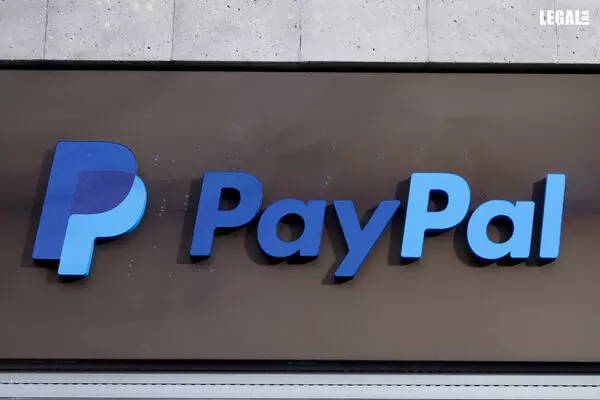- Home
- News
- Articles+
- Aerospace
- AI
- Agriculture
- Alternate Dispute Resolution
- Arbitration & Mediation
- Banking and Finance
- Bankruptcy
- Book Review
- Bribery & Corruption
- Commercial Litigation
- Competition Law
- Conference Reports
- Consumer Products
- Contract
- Corporate Governance
- Corporate Law
- Covid-19
- Cryptocurrency
- Cybersecurity
- Data Protection
- Defence
- Digital Economy
- E-commerce
- Employment Law
- Energy and Natural Resources
- Entertainment and Sports Law
- Environmental Law
- ESG
- FDI
- Food and Beverage
- Gaming
- Health Care
- IBC Diaries
- In Focus
- Inclusion & Diversity
- Insurance Law
- Intellectual Property
- International Law
- IP & Tech Era
- Know the Law
- Labour Laws
- Law & Policy and Regulation
- Litigation
- Litigation Funding
- Manufacturing
- Mergers & Acquisitions
- NFTs
- Privacy
- Private Equity
- Project Finance
- Real Estate
- Risk and Compliance
- Student Corner
- Take On Board
- Tax
- Technology Media and Telecom
- Tributes
- Viewpoint
- Zoom In
- Law Firms
- In-House
- Rankings
- E-Magazine
- Legal Era TV
- Events
- News
- Articles
- Aerospace
- AI
- Agriculture
- Alternate Dispute Resolution
- Arbitration & Mediation
- Banking and Finance
- Bankruptcy
- Book Review
- Bribery & Corruption
- Commercial Litigation
- Competition Law
- Conference Reports
- Consumer Products
- Contract
- Corporate Governance
- Corporate Law
- Covid-19
- Cryptocurrency
- Cybersecurity
- Data Protection
- Defence
- Digital Economy
- E-commerce
- Employment Law
- Energy and Natural Resources
- Entertainment and Sports Law
- Environmental Law
- ESG
- FDI
- Food and Beverage
- Gaming
- Health Care
- IBC Diaries
- In Focus
- Inclusion & Diversity
- Insurance Law
- Intellectual Property
- International Law
- IP & Tech Era
- Know the Law
- Labour Laws
- Law & Policy and Regulation
- Litigation
- Litigation Funding
- Manufacturing
- Mergers & Acquisitions
- NFTs
- Privacy
- Private Equity
- Project Finance
- Real Estate
- Risk and Compliance
- Student Corner
- Take On Board
- Tax
- Technology Media and Telecom
- Tributes
- Viewpoint
- Zoom In
- Law Firms
- In-House
- Rankings
- E-Magazine
- Legal Era TV
- Events
Bombay High Court Stays Rs.32.39 Crores IT Demand Notice To PayPal

Bombay High Court Stays Rs.32.39 Crores IT Demand Notice To PayPal
The matter has been posted for hearing on 8 January 2024
The Bombay High Court has stayed an Income Tax (IT) demand and penalty notice issued to PayPal, The Assistant Commissioner of Income Tax (ACIT), National Assessment Faceless Centre, New Delhi, had demanded a payment of Rs.32.39 crores from the online payment processing company for allegedly under-reporting its income for the Assessment Year (AY) 2020-2021.
In the PayPal Payments vs. ACIT & Ors case, a Division Bench of Justice KR Shriram and Justice Neela Gokhale stayed the 17 October final assessment order till 31 January 2024.
On a plea filed by PayPal, the Court stated, “There shall be ad-interim relief in terms of prayer clause (d) which reads that pending the hearing and final disposal of the petition, stay the operation of the order, the demand notice, the notice, the penalty notice, the draft order, and the transfer pricing order (TPO) passed by the ACIT, Delhi and Mumbai, on the terms and conditions this Court deems fit.”
The PayPal petition, filed through advocates Anuj Jhaveri and Mihir Modi, stated that initially, it received a notice for the computation of arm's length price (ALP) for the AY 2020-2021.
However, on 29 July, the ACIT, Mumbai passed a TPO whereby an adjustment of over Rs.91 crores was made for the distribution of payment services in India, and a penalty notice was also issued.
On 17 October, the IT review unit made an addition of Rs.91 crores to the assessed income, and the final assessed income of Rs.104 crores was marked. On the same day, a demand notice was issued for over Rs.32.39 crores to be paid within 30 days on the grounds that PayPal under-reported its income.
The action was challenged by PayPal. It contended that according to Section 153(1) of the Income Tax Act, 1961, no order of assessment could be made under Section 143 after the expiry of 18 months (extendable up to 12 months) from the end of the annual year in which the income was first assessable.
It asserted that the legal period within which the assessment order could be passed expired on 30 September, whereas the assessment order was passed on 17 October. Therefore, the order, the demand notice, and the penalty notice were liable to be quashed.
The financial technology company argued that the proceedings initiated by the IT department were not in accordance with law, and were completely arbitrary, illegal, and without jurisdiction.
The assessing officers have now sought three weeks’ time to file their response to the petition.
Senior advocate Jehangir Mistri appeared for PayPal along with Luthra and Luthra partner Rubal Bansal Maini.
The respondents were represented by advocates Akhileshwar Sharma and Shilpa Goel.



